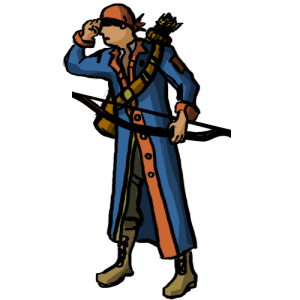 From the journal of Barnard of Shelton, master trader in the employ of the Illyria Trade Council, recording his journeys to the Broken Lands.
From the journal of Barnard of Shelton, master trader in the employ of the Illyria Trade Council, recording his journeys to the Broken Lands.
I was welcomed in Belgorrian with trumpets blaring, a rich carpet rolled out on the dock to great me, and rows of men-at-arms lining my procession to the royal palace. There was a formal presentation to King Ulharadd in his throne room, and then a great feast in the evening.
This, I thought, is a pirate city? I had expected rough cut-throats, carousing in stinking taverns, making threats upon my life. But instead I was being wined and dined in royal style, treated to a display of courtly splendour and shown every respect.
The following day I rode out to hunt with Ulharadd and some of his courtiers.
“We are the true Warrior-Kings of these lands,” he assured me. “Our wealth, it is true, often comes from plunder. But raiding is a traditional noble pass time, a source of wealth and honour, and a training for war. People call us pirates, because we prey upon ships that will not bow before us and offer us due payments. In much the same way land-locked nobles will extract loot from subjects who refuse to bow to them and pay taxes. Are the world’s nobles all bandits? Only then are we pirates.”
Ulharadd’s views of other local rulers was not entirely complementary. He had the highest praise for Ramoar, Surriem and Azoash, the other three so-called Pirate Kings, with whom he is closely allied. But he was dismissive of the Kings of Virten, who he mocked as “commoners without breeding, training or experience, raised above their abilities to rule, unable to cope, reliant upon the College of Silence to secure their election and then twice as reliant on the College’s advisers and spies in order to rule.” In other words, the Kings of the west were, in his view, incompetent puppets, manipulated by the College. For the New Light he had even less kind words, dismissing them as power-mad maniacs. And when I asked about the Drek-Hhakrall he only laughed.
“We have no enmity to these people,” he shrugged, “but we do not pretend that they true kings, such as ourselves.”
Ulharadd explained that his own lands were ruled by men trained for war, taught from birth how to rule, and supported by families with experience in combat, administration and leadership. They were, he said, as any good nobles should be, an elite, superior in  breeding and training, ruling over those less capable.
breeding and training, ruling over those less capable.
What was unusual, he conceded, that he and his fellow kings laid claim not only to land but also to water – specifically to all the waters around their islands, north as far as the jungle and south to the icy shores. Then he said that he hoped that the Illyria Trade Council would soon become some of his most honoured water-borne subjects – that we would bow to his throne, accept the protection of his fleet, and pay him royally.
The court was spectacular. The food, the entertainments, the quality of courtesy and conversation, the discipline of the troops and the fortifications of the city were all of the highest standard.
But such trappings do not disguise that rulers who blackmail and prey upon honest trade ships are nothing but pirates, and are the enemies of all honest merchants.
